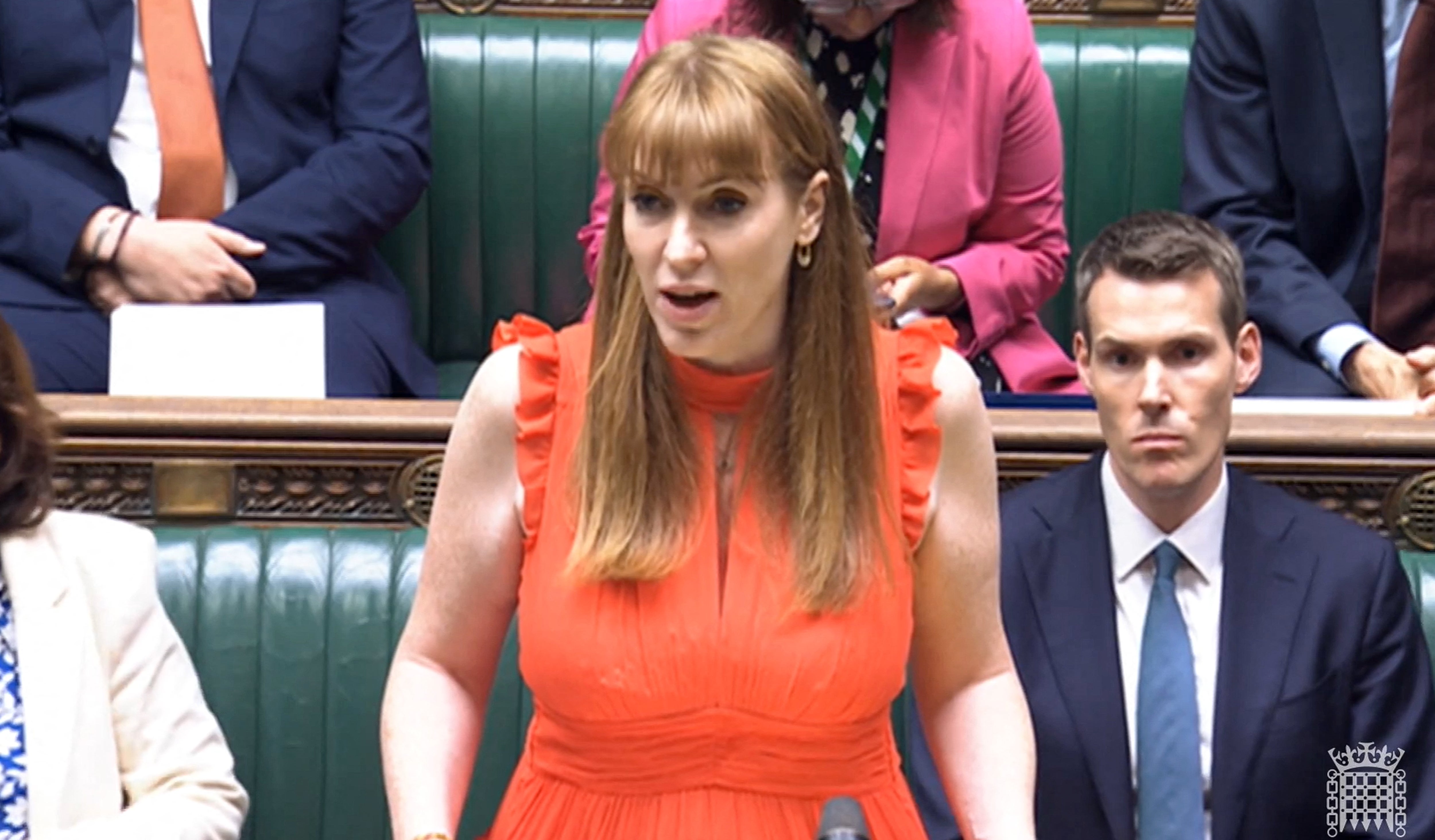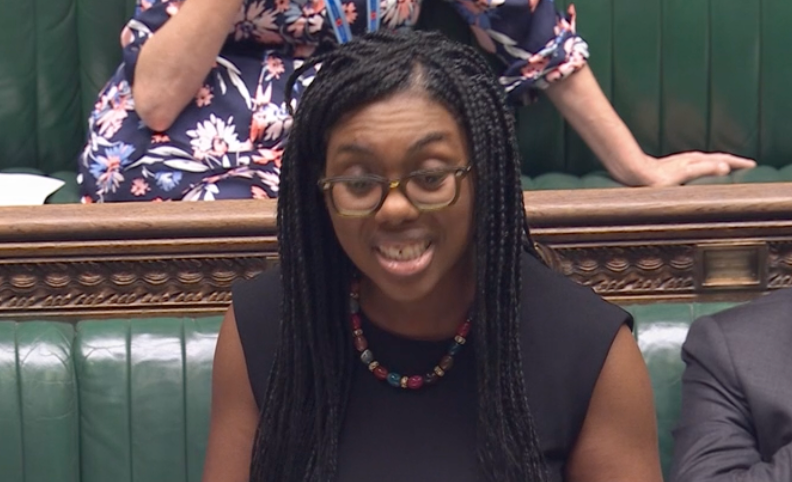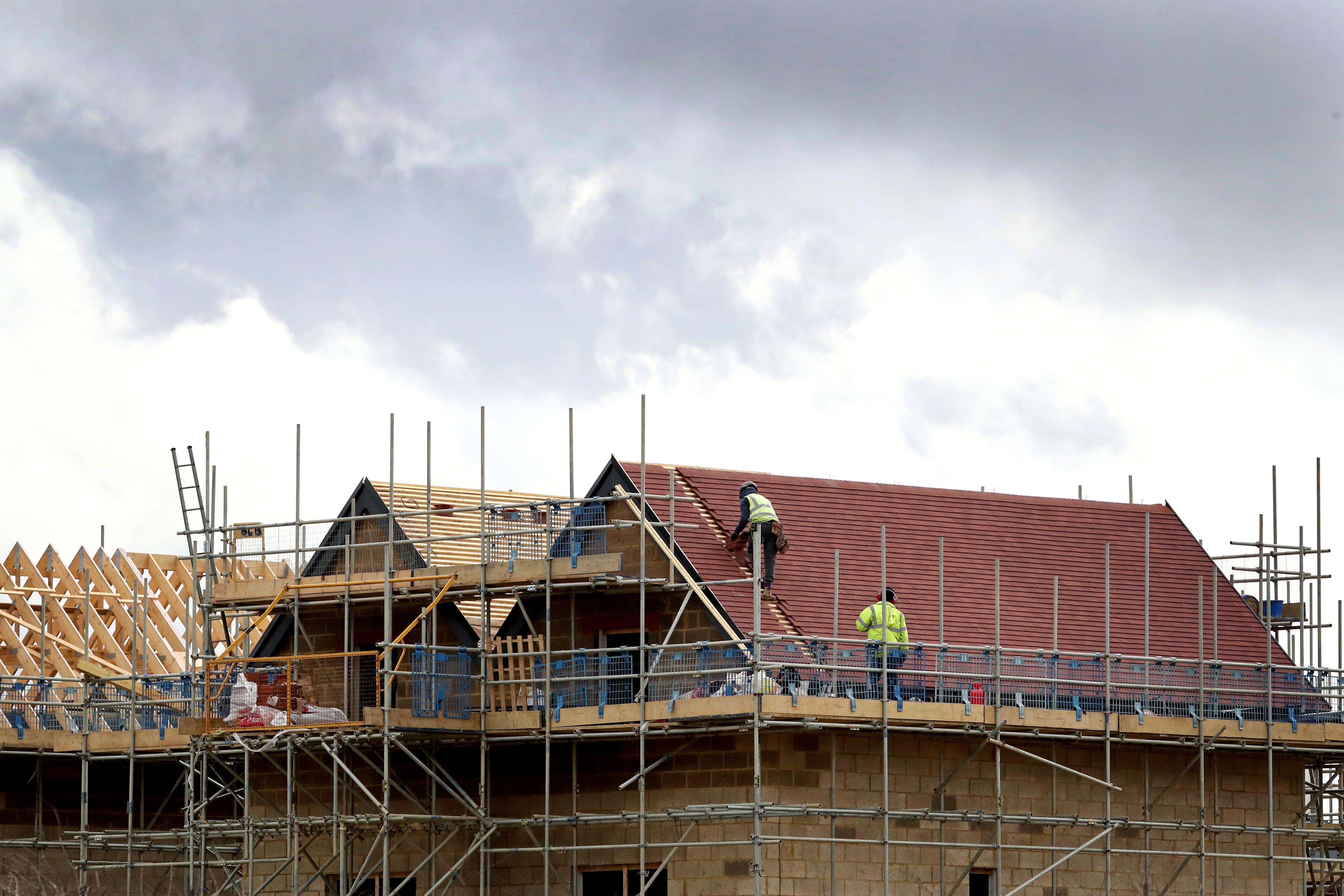Angela Rayner’s planning ‘revolution’ slashes housebuilding target for London
Government officials said London’s target would fall from 100,000 homes per year to 80,000
Your support helps us to tell the story
From reproductive rights to climate change to Big Tech, The Independent is on the ground when the story is developing. Whether it's investigating the financials of Elon Musk's pro-Trump PAC or producing our latest documentary, 'The A Word', which shines a light on the American women fighting for reproductive rights, we know how important it is to parse out the facts from the messaging.
At such a critical moment in US history, we need reporters on the ground. Your donation allows us to keep sending journalists to speak to both sides of the story.
The Independent is trusted by Americans across the entire political spectrum. And unlike many other quality news outlets, we choose not to lock Americans out of our reporting and analysis with paywalls. We believe quality journalism should be available to everyone, paid for by those who can afford it.
Your support makes all the difference.Angela Rayner’s planning “revolution” will see London’s housebuilding target slashed by 20,000 homes, despite a wider push to boost the number of houses being built each year.
The deputy prime minister and housing secretary unveiled a major overhaul of the planning system today, which will see all councils in England given new, mandatory housing targets as part of a plan to deliver 1.5 million more homes in the UK.
She warned that Britain is facing the “most acute housing crisis in living memory”, claiming that the number of new homes is set to drop below 200,000 this year – something Ms Rayner dubbed “unforgivable”.

The overall housing target for the UK will increase to 370,000, replacing the previous Tory government’s advisory target of 300,000 homes per year.
But government officials said London’s target would fall from 100,000 homes per year to 80,000.
Ms Rayner claimed the previous figure was “absolute nonsense” and an “arbitrary figure”, denying that the government is “lowering our ambition for London”.
But Priced Out, a group campaigning for more affordable homes, warned that London is already “the most unaffordable place in the country”.
Freddie Poser, the organisation’s executive director, said: “Rayner has stuck to her ambition to get housebuilding moving and raised the national target to 370,000 which is very welcome.
“It is a shame to see a 20 per cent drop in the London target proposed – this is exactly where we should be building homes.
“London is the most unaffordable place in the country, new homes in the city would have an outsized impact on solving the housing shortage. PricedOut will be responding to the consultation to recommend the government keep the target at 100,000.”
The new rules set out in the Commons today will reverse the decision made last year to water down housing targets, which saw them become advisory, instead making them mandatory for local governments.
Referring to the change in the rules overseen by the previous Conservative government, Ms Rayner said: “They knew this would tank the housing supply, but they still did it.”

In addition to restoring mandatory housing targets, the method used to calculate them will also be updated, the housing secretary said, claiming that the previous method relied on “decade-old data”.
The department said the new method will require councils to ensure homes are built in the right places and development is proportionate to the size of existing communities, “while adding an extra level of ambition in the most unaffordable areas”.
Meanwhile, any green belt land released for development will be subject to “golden rules” to ensure it delivers 50 per cent affordable homes and has access to green spaces and infrastructure, such as schools and GP surgeries.
Shadow housing secretary Kemi Badenoch questioned why building targets in London were being reduced, saying: “The government is in danger of choosing the worst of all worlds.”
She added: “It’s not addressing the basic economics of housebuilding, it’s centralising decision-making, and when you look at all that it looks like 1.5 million will be a distant aspiration rather than a meaningful target.”

But addressing concerns over the changes, Ms Rayner told the Commons: “To this, I say we have a housing crisis and a mandate for real change, and we all must play our part.
“Second, that some areas might appear to get a surprising target – well, no method is perfect and the old one produced all sorts of odd outcomes. Crucially, ours offers extra stability for local authorities.
“Third, that we are lowering our ambition for London. I’m clear we’re doing no such thing. That London had a nominal target of almost 100,000 homes a year based on an arbitrary uplift was absolute nonsense.
“The adoption of the London plan has a target of around 52,000 and delivery in London last year was around 35,000.
“The target we’re now setting for London – roughly 80,000 – is still a huge ask but I know it’s one that the mayor is determined to rise to and I met with him last week about this.
“Fourth, some will say a total of 370,000 is not enough. To this, I say ambition is critical but we also need to be realistic.”
Kate Henderson, chief executive of the National Housing Federation, welcomed the announcement, saying: “It’s great to see the government place social and affordable housing at the heart of its plans for tackling the housing crisis.
“We strongly welcome the government’s commitment to reintroducing more ambitious mandatory housing targets, recognising the importance of social rented homes, and to overhauling the planning system, which we have long been calling for.
“These changes are an important first step to increasing supply, and we agree with the secretary of state that to reach the government’s target of 1.5 million new homes over this parliament, we must significantly increase the supply of social and affordable housing.”
But Jonathan Cox, partner and head of social housing at specialist law firm Anthony Collins, called for a more “holistic solution” to address the housing shortage, warning: “Simply piling yet more pressure onto local authorities by increasing mandatory housebuilding targets won’t work, however. Social housing providers are already deeply concerned about the impact of regulatory pressures such as Awaab’s Law and new consumer standards, which are placing them under significant financial pressure.
“Many are simply unable to fund the upgrades required so it is crucial the sector has the financial capacity to meet the government’s worthy development intentions. A more holistic solution is needed to address the housing shortage and facilitate more social housing development.”

Join our commenting forum
Join thought-provoking conversations, follow other Independent readers and see their replies
Comments